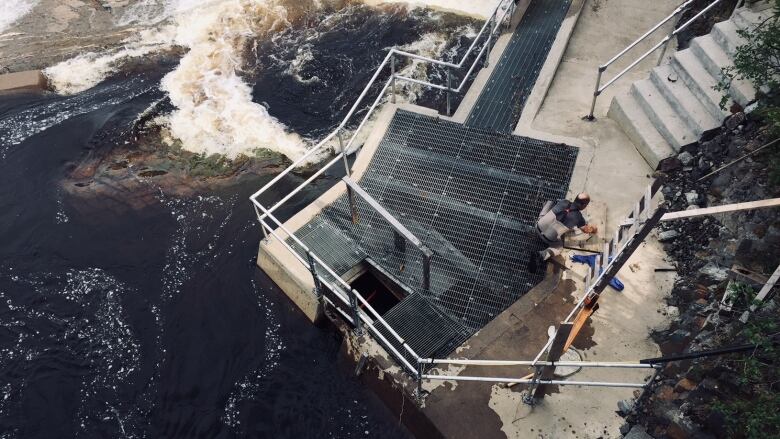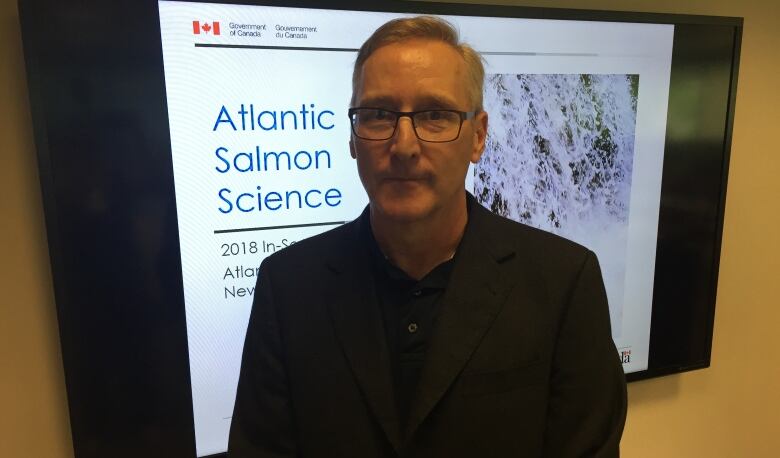'Startling' declines in salmon stocks provincewide, DFO warns
Scientists recommend all Labrador rivers close to retention fishing

All rivers in the province may soon be closed to retention salmon fishing, now that Department of Fisheries and Oceans scientists say their mid-season review of stocks in Labrador show numbers are down there as they were on the island.
"Declines of this magnitude over such a wide geographic range have not been seen before, so this is quite startling, and raised a lot of concern within the science sector," said DFO scientist Geoff Veinott.
- DFO scientists recommend end to salmon harvesting in Newfoundland rivers
- 'Hard to fault' DFO's salmon angling decision, say conservation groups
DFOcounted wild Atlantic salmon in four rivers in Labrador up to Sunday, to compare this season's numbers with those between 2002 and 2017.
No data was available for English River, as Veinott said salmon in Labrador are showing up later than usual anyway, withthe run appearing even later there.DFO will keep tracking it daily.
Adult salmon returns to Sandhill River, Southwest Brook and Muddy Bay Brook are expected to be below the six-year mean from 2010 to 2015 and the 10-year mean from2002 to 2011.

Due to the declining returns,the scientists recommend DFO close all rivers in Labrador to retention fishing, but allow catch and release fishing as long as the water temperature isn't higher than 18 C, when catch and release leads to more fish dying.
DFO will now take that advice into consideration and release an updated management plan, but it followed its scientists' advice to end the one-fish retention limit for Newfoundland on July 19.
'Lethal' temperature
Veinott said it's not clear what's causing the declining returns, but it appears to be a problem in the ocean as salmon leave and don't come back to spawn.
"Presumably the bulk of it would be what you'd have to refer to as natural mortality;either they're predated upon or they're starving," he said.
"Most of our counting fences are right at the mouth of the river, so there's very little angling downstream from the fence," said the scientist.
"Any harvest that takes place, they're basically removing potential spawners from the system," hence the call for an end to harvesting, heexplained.
Veinott saidhightemperatures are affecting salmon as well, with reports of a water temperature of 24 Cin one Lake Melville river.
"You get up to 24, 25 degrees that can be lethal to an adult Atlantic salmon," Veinott said,even though salmon are usually adept at finding refuge in cold water.












_(720p).jpg)


 OFFICIAL HD MUSIC VIDEO.jpg)
.jpg)



























































































